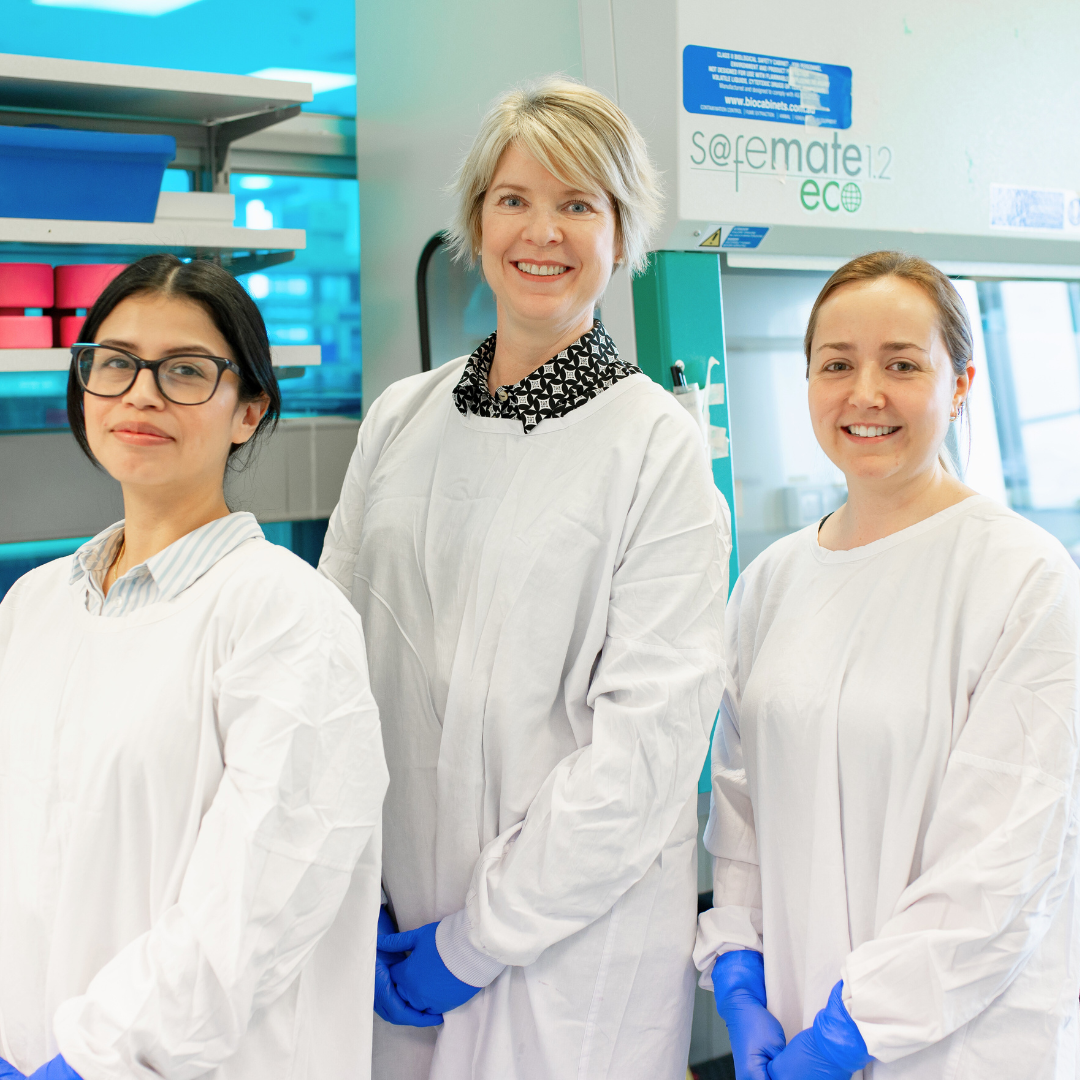Next Generation Paediatric Cancer Therapies Program
Combining multi-omic profiling and AI analytical tools to develop novel treatments for aggressive childhood cancers.

The challenge
Paediatric oncology faces significant hurdles with hard-to-treat cancers like brain and soft tissue tumours. Despite advancements in treatments resulting in increased overall survival rates for some cancers, many high-risk childhood cancers still lack effective therapies.
Paediatric cancers are also rare and represent only 1% of all cancer cases, making them commercially unprofitable for pharmaceutical companies. As a result, only 39 drugs have been approved for paediatric cancers compared to 302 drugs for adults between 2012 and 20211. Current treatments often rely on outdated therapies that cause severe long-term side effects.
This project aims to address these gaps by focusing on molecularly guided therapies targeting the unique biology of paediatric cancers.
The research
The current landscape of paediatric oncology presents significant challenges that this research project aims to overcome.
One of the primary issues is the lack of representative and well-characterised paediatric tumour models. Currently, there is a need for a comprehensive suite of cancer models that accurately reflect the unique characteristics of paediatric cancer patients. The research team has created, and will continue to expand, the Children’s Cancer Model Atlas – one of the world’s largest repositories of paediatric cancer cell lines, consisting of over 30 low-survival tumour models from more than 500 patients.
In the next 12 months, the research team aims to characterise 50 cancer cell lines as part of the Children’s Cancer Model Atlas, where tumour cells will undergo thorough comprehensive molecular analysis that involves analysing DNA, RNA, and protein-level data to understand the molecular characteristics of each cancer type.
Leveraging artificial intelligence (AI) and machine learning algorithms, the research team will also analyse DNA, RNA, and protein-level data to prioritise promising ‘targets’ for further validation. If successful, the research team could identify one to two new therapeutic targets matched with a specific indicator for more effective, personalised treatments that could be investigated in future studies.
Lastly, the research team will continue to update the Children’s Cancer Model Atlas, incorporating new data analytic capabilities to foster global collaboration among researchers and accelerate the discovery of paediatric cancer-specific treatments.
Two Hudson Institute researchers working on this project will receive Children’s Cancer CoLab Future Leaders Fellowships. These fellowships aim to strengthen Australia’s childhood cancer workforce to drive discoveries and clinical advancements.
The impact
This research aims to improve treatment options for children with the most difficult-to-treat cancers by tackling the lack of effective therapies.
Characterising more difficult-to-treat cancer cell lines may uncover new information about how each cancer functions and find weaknesses that treatments could target. Combining one of the world’s largest collections of childhood cancer cell lines with advanced computational methods, the researchers will look for the most promising markers and drug targets.
The goal is to discover new, more effective treatments that can be tested in future clinical trials and ultimately give children with cancer a better chance at survival and a healthier future.
Children’s Cancer CoLab Funding Information
Grant/s Awarded (Total): $2,974,147
- Part 1 funding: $1,340,000 from July 2024 to February 2025
- CCCoLab Next-Generation Therapies funding: $1,634,146 from March 2025 to February 2026
Impact Programs: Next-Generation Therapies and Future Leaders
Scientific Review: Discovery and Translational Research Scientific Advisory Committee
Lead Institution: Hudson Institute of Medical Research
Lead Researcher: Prof Ron Firestein
Associated Future Leaders: Dr Yichen Zhou and Dr Hanbyeol Lee
1: https://www.sciencedirect.com/science/article/pii/S2772610X2300003X
Contact us to find out more about this project
Articles featuring
Next Generation Paediatric Cancer Therapies Program
Read our latest news
More Funded Projects
Grant Funding
Our program funding is allocated through a competitive process underpinned by robust expert review. We adopt scientific rigour to evaluate each proposal’s potential for impact and alignment with identified childhood cancer research and care priorities.







